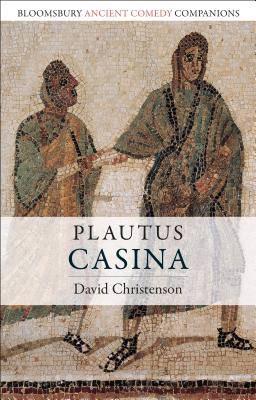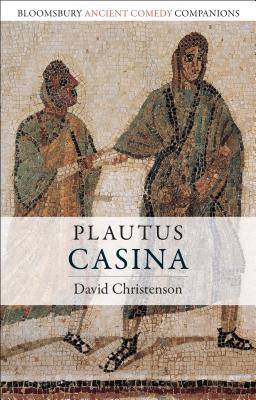
- Afhalen na 1 uur in een winkel met voorraad
- Gratis thuislevering in België vanaf € 30
- Ruim aanbod met 7 miljoen producten
- Afhalen na 1 uur in een winkel met voorraad
- Gratis thuislevering in België vanaf € 30
- Ruim aanbod met 7 miljoen producten
Zoeken
€ 161,45
+ 322 punten
Omschrijving
This is the first volume dedicated to Plautus' perennially popular comedy Casina that analyses the play for a student audience and assumes no knowledge of Latin. It launches a much-needed new series of books, each discussing a comedy that survives from the ancient world. Four chapters highlight the play's historical context, themes, performance and reception, including its reflection of recent societal trends in marriage and property ownership by women after the Punic Wars, and its complex dynamics on stage. It is ideal for students, but helpful also for scholars wanting a brief introduction to the play.
Casina pits a husband (Lysidamus) and wife (Cleostrata) against each other in a struggle for control of a 16-year-old slave named Casina. Cleostrata cleverly plots to frustrate the efforts of her lascivious elderly husband, staging a cross-dressing 'marriage' that culminates in his complete humiliation. The play provides rich insights into relationships within the Roman family. This volume analyses how Casina addresses such issues as women's status and property rights, the distribution of power within a Roman household, and sexual violence, all within a compellingly meta-comic framework from which Cleostrata emerges as a surprising comic hero. It also examines the play's enduring popularity and relevance.
Casina pits a husband (Lysidamus) and wife (Cleostrata) against each other in a struggle for control of a 16-year-old slave named Casina. Cleostrata cleverly plots to frustrate the efforts of her lascivious elderly husband, staging a cross-dressing 'marriage' that culminates in his complete humiliation. The play provides rich insights into relationships within the Roman family. This volume analyses how Casina addresses such issues as women's status and property rights, the distribution of power within a Roman household, and sexual violence, all within a compellingly meta-comic framework from which Cleostrata emerges as a surprising comic hero. It also examines the play's enduring popularity and relevance.
Specificaties
Betrokkenen
- Auteur(s):
- Uitgeverij:
Inhoud
- Aantal bladzijden:
- 176
- Taal:
- Engels
- Reeks:
Eigenschappen
- Productcode (EAN):
- 9781350020542
- Verschijningsdatum:
- 10/01/2019
- Uitvoering:
- Hardcover
- Formaat:
- Genaaid
- Afmetingen:
- 140 mm x 216 mm
- Gewicht:
- 349 g

Alleen bij Standaard Boekhandel
+ 322 punten op je klantenkaart van Standaard Boekhandel
Beoordelingen
We publiceren alleen reviews die voldoen aan de voorwaarden voor reviews. Bekijk onze voorwaarden voor reviews.








